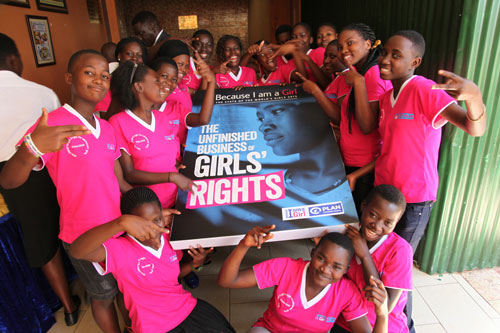By Sowell Chikwari (Staff Writer)
Parliament must adopt robust measures to combat online gender-based harassment and abuse. This was revealed by civil society organizations (CSOs) and stakeholders who attended the Girls Engage Program organised by Plan International Zimbabwe that was held last Friday in the capital, Harare to mark the 16 Days of Activism Against Gender-based Violence.
According to research conducted across 31 countries involving over 14 000 girls and young women for Plan International’s annual State of the World Girls Report, 58% of the girls surveyed experienced online harassment.
In her opening remarks, Plan International Country Director Dr. Angela Muriithi lamented the “limited access to digital technology by girls and young women which translates to restricted access to digital spheres consequently digital justice. This also worsens the digital gender divide providing a fertile ground for increased violence against girls and young women as well as child marriages hence the urgent need for supportive infrastructure to curb sexual exploitation.”
Speaking at the event which ran under the hashtag #FreeToBeOnline, the Zimbabwe National Council for the Welfare of Children (ZNCWC) board chairperson Mr. Lamiet Phiri bemoaned the lack of stringent laws to curb social media abuse saying “There are no laws deterrent enough to curb cyber-bullying. Currently, we only have bills that are still in motion in Parliament.
“We also note with concern the role of dirty, sexist and degrading musical compositions in public spaces such as kombis, shopping centres and on the radio in perpetuating gender-based violence. The media should also report responsibly on gender-based violence and sexual harassment.”
Kadoma Central MP Muchineripi Chinyanganya weighed in noting that “online gender-based harassment silences girls’ voices and is a barrier for the realisation of their full leadership potential as they end up withdrawing from online platforms.”
Speaking at the same event, Child Rights National Steering Committee Chairperson, Buhera Central MP Matthew Nyashanu said “Parliament must address the socio-cultural and political barriers which restrict girls and young women from realising their full potential. These include access to the health delivery system, increased child labour, poor access to safe drinking water and access to the criminal justice system as cases are taking longer to be resolved. All of these factors create an enabling environment for gender-based violence.”
This was also echoed by legislator Innocent Gonese who sits in the same parliamentary committee saying “there is an urgent need to lobby Parliament through the petitions procedure to conscentise MPs on the severity of the problem so that adequate and effective instruments are enacted and fully implemented to curb the scourge.
MP Gonese also cited the lack of political will in addressing the same as well as the shortage of regional magistrates who have jurisdiction over such matters as hindering the justice delivery system.
Gender Commissioner Naome Chimbetete said her commission is advocating for a mandatory sentence for rape, sexual harassment, and gender-based violence to curb the abuse of girls and young women.






